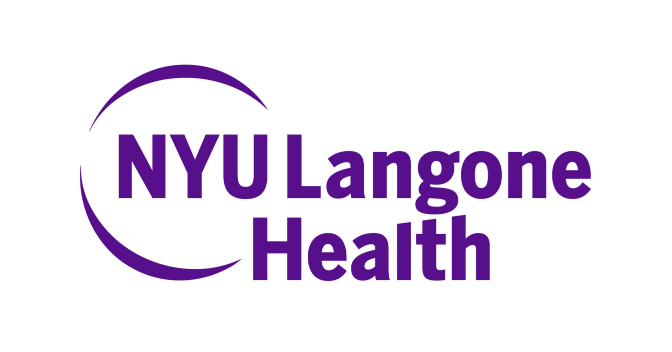
OR WAIT null SECS
Bariatric Surgery Type Impacts Survival for Older Patients with ESKD
Bariatric surgery, particularly sleeve gastrectomy, may improve survival and kidney transplant access in older adults with obesity and ESKD.
New research shows bariatric surgery type influences outcomes for older adults with obesity and end-stage kidney disease (ESKD), with sleeve gastrectomy (SD) linked to decreased mortality and improved kidney transplant access compared with Roux-en-Y gastric bypass (RYGB).1
In the retrospective cohort study using registry data from the United States Renal Data System (USRDS), investigators evaluated all-time mortality and kidney transplant incidence for patients with ESKD and obesity, assessing the differences among age populations.
The global obesity epidemic has significant consequences for chronic kidney disease (CKD), as elevated body mass index is a leading risk factor for developing CKD. Obesity can also limit access to kidney transplantation, increasing the risk of complications during and after surgery.2
“There is scant data to guide decision-making about RYBD or SG for older adults with obesity and ESKD, representing a major knowledge gap given the secular trends of aging and obesity in ESKD,” wrote Babak J. Orandi, MD, PhD, an associate professor of surgery and medicine at NYU Langone Health, and colleagues. “Therefore, we sought to quantify mortality risks and likelihood of kidney transplantation for older patients with ESKD undergoing RYGB or SG and to determine if they differed from those of younger patients with ESKD.”
Through Medicare inpatient billing claims, investigators identified patients with ESKD undergoing RYGB and SG and compared their 5-year mortality by age group, classified as 18-29, 30-39, 40-49, 50-59, 60-69, and ≥ 70 years of age, to nonsurgical matched controls using 1:3 Mahalanobis distance matching, Kaplan-Meier, and Cox regression. Additional measures included a comparison of the age-stratified kidney transplant incidence between waitlisted patients and controls.
The study population included adult patients with ESKD whose BMI at first ESKD service was ≥ 35 kg/m2. Of 876 patients with RYGB and 2628 nonsurgical matched controls, 16.3% and 16.9% were 60-69 years of age, and 9% and 8.9% were ≥ 70 years of age. Of 1508 patients with SG and 4524 nonsurgical matched controls, 9.6% and 9.7% were 60-69 years of age, and 0.7% and 0.9% were ≥ 70 years of age.
Among patients with RYGB versus nonsurgical matched controls, investigators observed a 5-year mortality of 11.4% versus 17.3% (Adjusted Hazard Ratio [aHR], 0.58; 95% Confidence Interval [CI], 0.23-1.44), 31.5% versus 30.1% (aHR, 1.02; 95% CI, 0.73-1.41), and 37.9% versus 47.3% (aHR, 0.77; 95% CI, 0.69-1.00) for ages 18-29, 30-39, and 40-49 years, respectively. In older adults, mortality was higher: 5-year mortality for ages 60-69 was 77.1% versus 68.3% (aHR, 1.56; 95% CI, 1.24-1.95) and for ≥70 years was 86.8% versus 78.7% (aHR, 2.39; 95% CI, 1.80-3.16).
For patients with SG versus controls, 5-year mortality was 17.8% versus 30.2% (aHR, 0.47; 95% CI, 0.26-0.83), 18.1% versus 36.3% (aHR, 0.39; 95% CI, 0.28-0.53), 28.7% versus 48.9% (aHR, 0.43; 95% CI, 0.35-0.53), 31.1% versus 61.6% (aHR, 0.35; 95% CI, 0.27-0.44), 37.3% versus 65.7% (aHR, 0.48; 95% CI, 0.35-0.66), and 51.5% versus 93.6% (aHR, 0.37; 95% CI, 0.14-0.94) for ages 18-29, 30-39, 40-49, 50-59, 60-69, and ≥70 years, respectively.
Among waitlisted patients ≥65 years, kidney transplant incidence was 21.3% versus 25.4% (aHR, 1.02; 95% CI, 0.19-5.26) for RYGB versus controls and 66.7% versus 39.9% (aHR, 2.31; 95% CI, 0.62-18.64) for SG versus controls.
“For older patients with ESKD and obesity, RYGB was associated with substantially elevated mortality, and SG was associated with decreased mortality. These data are helpful in counseling older patients with ESKD with obesity who are considering bariatric surgery and suggest that SG may be a better option for older patients,” concluded investigators. “Interventions to improve bariatric surgery outcomes-prehabilitation, for example-require further study but may play a role in improving survival in older adults with ESKD and obesity.”
References
Ishaque T, Massie AB, Stewart D, et al. Outcomes After Bariatric Surgery in Older Adults With Obesity and End‐Stage Kidney Disease. World Journal of Surgery. Published online November 20, 2025. doi:https://doi.org/10.1002/wjs.70162
C. P. Kovesdy, S. L. Furth, and C. Zoccali, “Obesity and Kidney Disease: Hidden Consequences of the Epidemic,” Canadian Journal of Kidney Health and Disease 4 (2017): 2054358117698669, https://doi.org/10.1177/2054358117698669.



